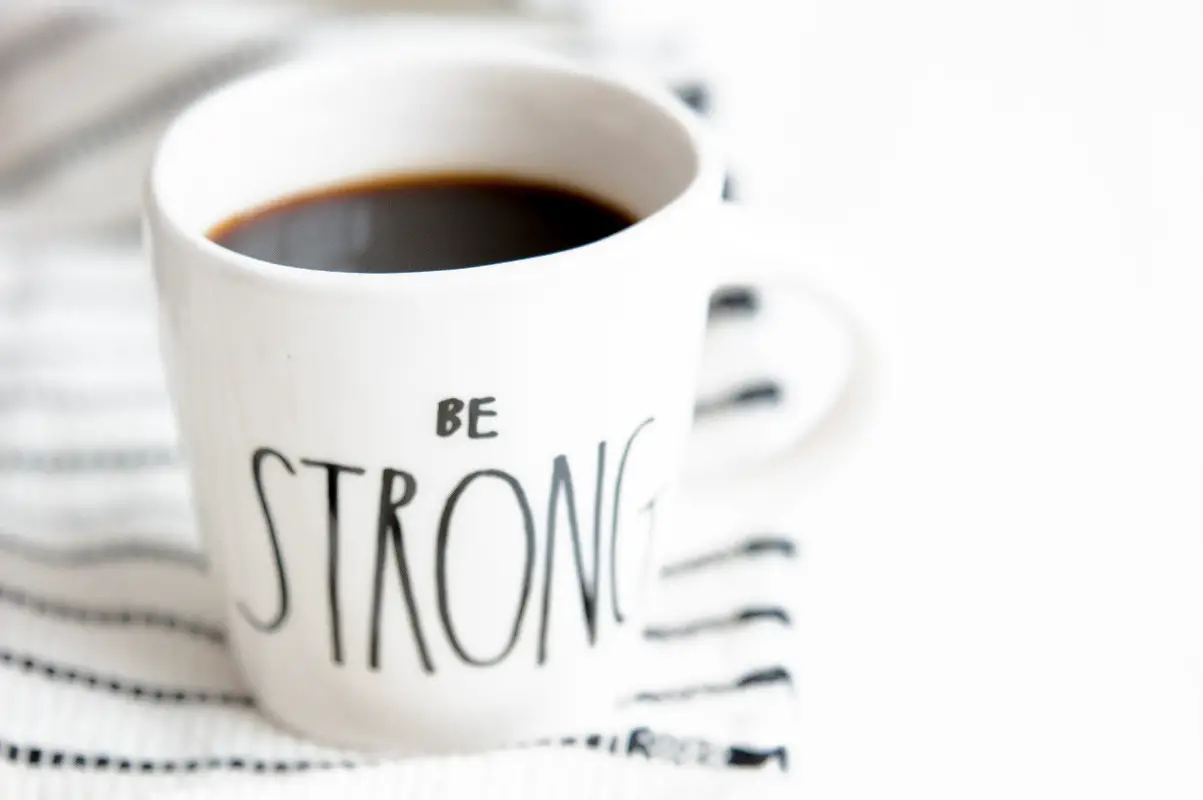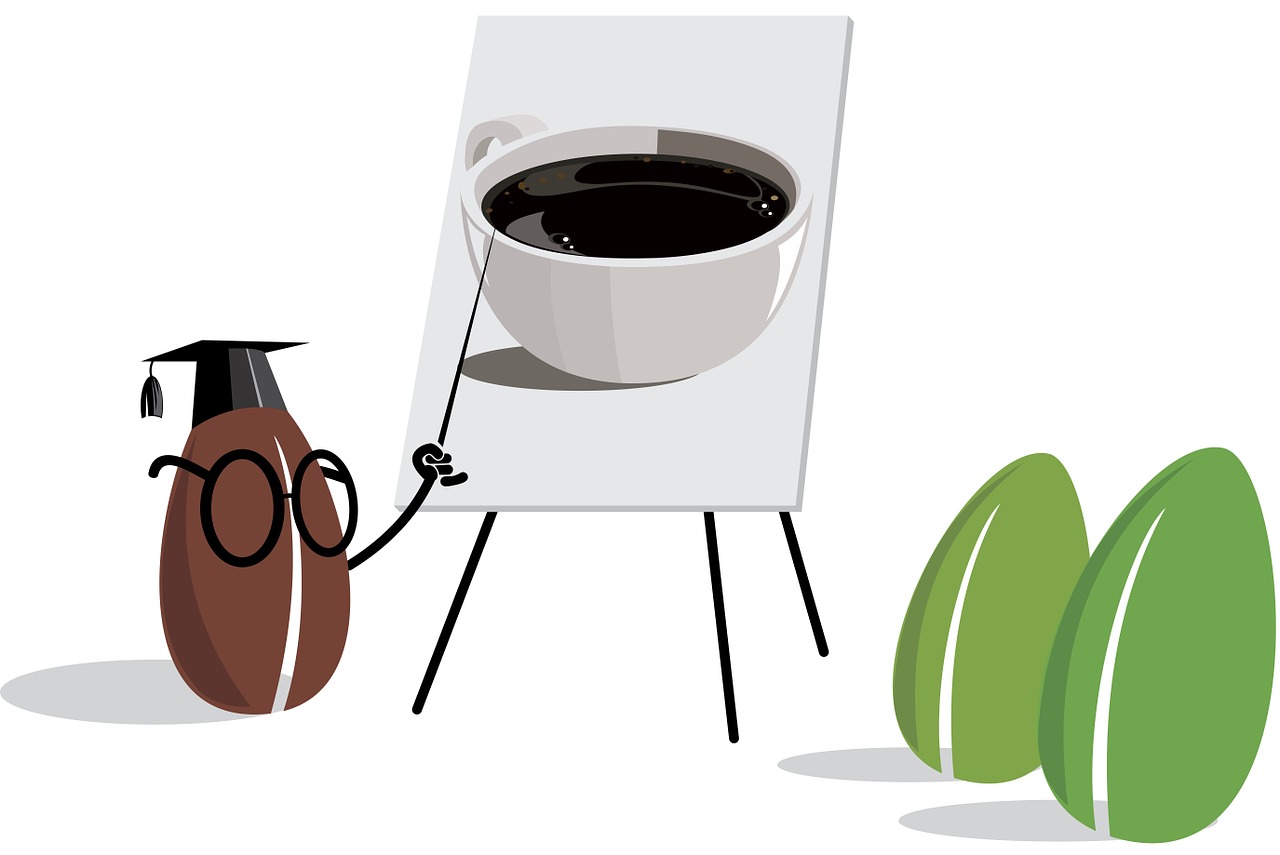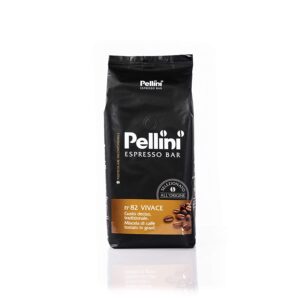
If you’re asking why decaf is more expensive than regular coffee, you’ve come to the right place. You probably had to pay a little extra at a café and are wondering why coffee without a kick would cost more than the real thing.
Decaf costs more than regular coffee because the process of removing caffeine from coffee beans is long and expensive. Decaffeination often includes costly chemicals and international shipping, making each pound of decaf coffee up to $1 more expensive than regular beans.
Coffee shop owners didn’t decide to charge extra for decaf coffee by themselves, the drink costs more to serve than normal coffee. Extra steps were added to the coffee supply chain, fancy tools were invented, and prices had to go up to compensate.
Why Is Decaf Coffee More Expensive?
The process coffee beans undergo to become decaf is the main reason why they cost more than regular java.
Coffee supply chains are simple. The beans grow, usually in a country close to the equator, then they are shipped to a roasting company. Once the beans are roasted, they are supplied to cafés, grocery stores, and other retailers like Amazon.
Decaf coffee, on the other hand, has additional steps in the supply chain. Once the beans are grown, they get sent to a company that specializes in decaffeination. Depending on the decaffeination method used, that could mean expensive chemicals or international shipping.
Let’s say coffee suppliers want to avoid mixing their coffee beans in chemicals and decided to make their decaf naturally. The coffee gets shipped to a factory near Vancouver, Canada where a company called Swiss Water runs the beans through their state-of-the-art decaffeination process.
Swiss Water is one of the most predominant companies in the business because its method of decaffeination keeps the natural flavor of the coffee beans intact.
The coffee supplier has to pay additional costs for shipping the beans to Canada, international taxes on their cargo, and the decaffeination process itself. Now the coffee needs to be shipped to the country where the roasting happens, meaning more transport cost, and cargo taxes. Then the supply chain resumes as before.
The other method of removing caffeine from coffee would be to soak the beans in large amounts of solvent, usually methylene chloride or ethyl acetate. As you can imagine, that would alter the quality of the coffee and obviously the taste.
So, you see why decaf is more expensive than regular coffee. The beans are soaked in large volumes of chemicals or they have to travel from country to country before they land in your cup.
Is Decaf Coffee Completely Caffeine Free?

Even though the decaffeination process removes almost all the caffeine content from coffee beans it’s impossible to extract all of it.
At its best decaffeination will only remove 99% of the caffeine. Every cup of decaf will contain a small trace of it. On average an 8oz cup of decaf will have anywhere between 2 to 15mg of caffeine.
How Decaf Coffee is Made?
Decaf coffee was invented in 1906 by a German named Ludwig Roselius. He used a solvent called benzene to remove caffeine from coffee beans. Since then, people have found healthier chemicals to use for decaffeination, but the process remains similar. Today we have four ways to get the caffeine out of coffee beans.
Methylene Chloride
In this method, coffee beans are soaked in hot water to begin the caffeine extraction, and then they are placed in a pool of methylene chloride which bonds with the coffee. This process removes 96-97% of the caffeine from the beans. Decaffeinating your java this way is the most cost-efficient method, but it also alters the taste and quality of your beans dramatically.
Ethyl Acetate
Often called the natural decaffeination process, using ethyl acetate preserves the flavor of your coffee bean. The chemical solvent is steamed through your beans until they swell and release 96-97% of their caffeine. Using ethyl acetate is more expensive than methylene chloride but not as costly as using just water.
CO2 Process
The CO2 method, also known as, “Sparkling Water process” consists of soaking coffee beans in highly compressed liquid CO2, which extracts the caffeine. This process is more expensive and time-consuming than using chemical solvents. Although, there is no evidence that one method is less harmful than the other.
Swiss Water
This is the newest form of decaffeination and it removes 99.9% of the caffeine from coffee beans using only water.
The beans are soaked in hot water which extracts sugar, oils, and of course caffeine. The water is flushed through a charcoal filter which separates the natural coffee flavors from the unwanted caffeine creating a substance called Green Coffee Extract. The decaffeinated beans are then soaked in the GCE to absorb their flavor once again.
Why is Decaf More Expensive in Stores
If you look at the wholesale price of coffee beans from coffee giants like Starbucks or Dunkin Donuts, you’ll see decaf and regular coffee prices are the same. That’s mostly because of the volume of coffee they produce. They dwarf family-owned cafés and little coffee chains in terms of how much coffee they need on a yearly basis.
A smaller coffee shop needs to charge a little extra for decaf because of how expensive it is to buy. Not because they want to make an extra buck off you.
I’ve come across the idea that coffee shop owners charge more for decaf coffee because they know people are willing to pay for it. That’s just not true. Speak to a café owner or manager and find out for yourself.
Summary
By now you should have an idea why decaf coffee is more expensive than your regular cup of joe. Neither coffee growers nor suppliers remove caffeine from their beans themselves. It’s always outsourced to professionals. Some of the costs associated with making decaf coffee can be related to:
- Professional decaffeination
- Chemicals involved
- International shipping
- Import/export taxes and fees
Most businesses run this way. As more people get involved in making a product the more expensive it becomes.
Decaf coffee is not a natural delight, instead, it’s a marvel of human ingenuity. It takes many hours of hard work to produce one batch. The simple fact that people have discovered a way for the beans to keep their natural flavors throughout the process is a miracle.
Next time you must pay a few extra cents for a caffeine-free cup of coffee remember how much effort went into making it.
Related Questions
Can Decaf Keep You Awake?
The tiny portion of caffeine content in decaf is not enough to keep you awake. Even if your body can’t tolerate caffeine it still won’t recognize the minuscule amount from a cup of decaf.
Why Do People Drink Decaf If It Doesn’t Boost Energy or Stimulate Awareness?
Some individuals are unable to consume caffeine but still enjoy the taste and aroma of coffee. Others may have had too much caffeine already and want to pace themselves to avoid any coffee jitters.
It may be hard for a coffee lover to understand, but some people only sip coffee in social settings. These individuals aren’t seeking a boost of energy or awareness but only to experience the pleasant atmosphere of the coffee culture.
Is Decaf Coffee Harmful to Health?
Many recent studies have shown that decaf coffee has no harmful effects. Although, some people don’t like the idea of using methylene chloride in the decaffeination process.
References
How do you decaffeinate coffee: https://www.bbc.com/future/article/20180917-how-do-you-decaffeinate-coffee
Is caffeine harmful: https://www.medicalnewstoday.com/articles/325502#decaf-vs-regular-coffee
I’ve always seen coffee as a way of bringing people together. Everywhere I go people seem to enjoy a fresh cup of coffee and that’s what drives my passion. There’s always a new brew to master, and there’s always a new face to enjoy it with. Hitch a ride with me on a coffee-fueled adventure to find a perfect cup.


